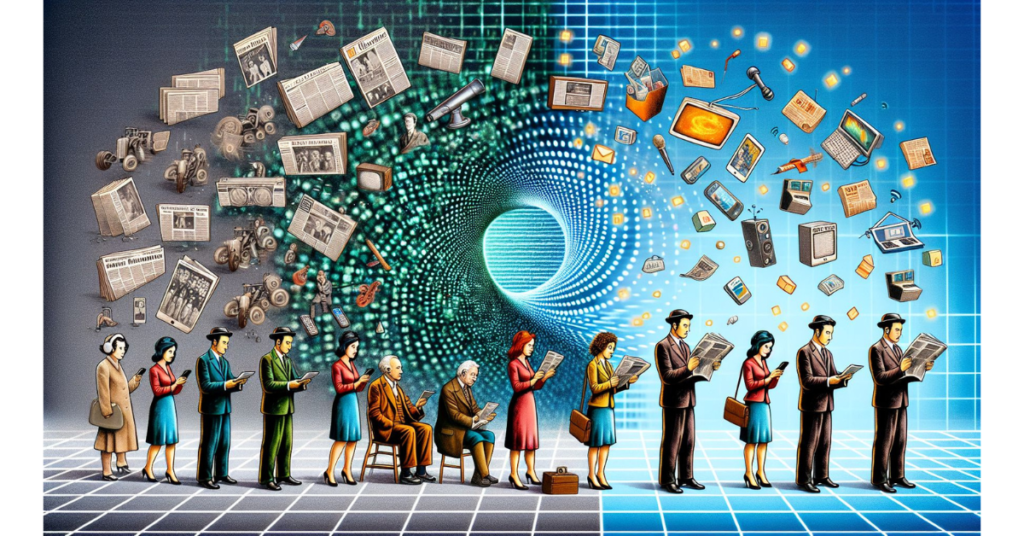In today’s fast-paced, technology-driven world, digital marketing has fundamentally changed the way people communicate, shop, work, and live. Over the past few decades, we have seen a dramatic shift from traditional marketing methods to digital platforms that leverage the internet, social media, and other online tools to reach consumers. This change has not only revolutionized businesses but has also profoundly impacted the lives of people around the world. In this article, we explore how digital marketing has changed people’s lives in profound and sometimes unexpected ways.
1. Improved Accessibility and Convenience
One of the most significant changes brought about by digital marketing is the ease of access to products, services, and information. Whether it’s online shopping, product reviews, or service searches, digital marketing platforms make everything accessible in just a few clicks. This has fundamentally changed consumer behavior. Shopping no longer requires a physical trip to the store, but is as easy as browsing a website or app.
Additionally, companies use digital marketing to tailor ads and offers to specific needs, making it easier for consumers to find products that match their preferences. This personalized experience increases convenience for consumers, leads to more informed decisions, and reduces the time spent on the purchasing process.
2. Greater opportunities for entrepreneurship
Digital marketing has democratized the business world. Entrepreneurs, especially those with limited resources, now have access to global markets through platforms such as social media, Google Ads, and content marketing. Starting a business doesn’t require a physical store or the high cost of advertising.
Through targeted digital marketing efforts, small business owners and individuals can reach large audiences without spending too much money. Social media influencers, online retailers, bloggers, and content creators can use platforms like Instagram, YouTube, and TikTok to build personal brands and turn them into profitable businesses. This has led to an increase in entrepreneurial activity, and many people have turned their hobbies or side projects into full-time jobs.
3. Empowerment through information
Digital marketing has empowered people by providing them with a wealth of information. Consumers no longer rely on TV ads or print ads to learn about products. Instead, they can conduct extensive research using online reviews, influencer testimonials, and social media content.
This empowerment goes beyond consumer behavior: it has also led to the emergence of an informed and active citizenry. Social media, email newsletters, and online campaigns allow people to champion causes, raise awareness about social issues, and participate in debates and discussions that shape society.
4. Changing Work and Career Dynamics
Digital marketing has also revolutionized the professional world. New careers and job opportunities have emerged in the digital space, from social media managers to SEO specialists and content creators to digital strategists. The demand for digital marketing professionals has skyrocketed and has changed the world of work.
5. Building Social Networks and Communities
Digital marketing not only sells products: it fosters relationships and communities. Social media platforms have become indispensable tools for connecting with like-minded people, sharing experiences, and building virtual communities. These platforms allow users to interact with brands, participate in contests, and become part of the brand’s identity.
The rise of online forums, social media groups, and influencer communities gives people a sense of belonging, even when they are miles apart. For businesses, online communication with customers has become a two-way communication channel through which comments are shared instantly and conversations take place in real time.
6. Changing Consumer Behavior
Another significant change brought about by digital marketing is the shift in consumer behavior. Traditional marketing largely relied on a one-way communication model in which companies exposed consumers to advertising. Today, digital marketing is all about engagement: companies create interactive experiences that involve consumers in the process.
People today expect personalized content and messages. They no longer just respond to general advertising but interact with brands that offer valuable and relevant content. Consumers are also more likely to seek out authentic reviews and user-generated content before making purchasing decisions, as trust in brands is now built through transparency and engagement.
7.Promoting Social Change
Digital marketing has played a crucial role in advocacy and social change. Social media platforms, blogs, and online petitions have allowed individuals and organizations to draw attention to a wide range of social issues, from environmental activism to human rights and political movements.
Campaigns such as #MeToo, Black Lives Matter, and climate change awareness use digital marketing tools to amplify their messages and spark global conversations. This shift has made it easier for people to mobilize, organize events, and drive social change in the digital sphere.
8. The Cons: Privacy and Oversaturation
While digital marketing has positively influenced many areas of life, it also poses challenges. The constant barrage of advertising and promotional messages can create information overload that overwhelms and tires consumers. Furthermore, the collection of personal data for targeted advertising raises privacy and security concerns.
Consumers are increasingly aware of how their data is used. This is leading to increased scrutiny of brand practices and greater demands for transparency and ethical marketing. The introduction of ad blockers and stricter privacy regulations shows how digital marketing must adapt to growing concerns about the exploitation of personal data.
Conclusion
In conclusion, it is undeniable that digital marketing has changed people’s lives, opening up new opportunities, reshaping consumer behavior, and creating a more connected world. It has opened doors to entrepreneurship, empowered people with information, and nurtured communities. At the same time, it has raised important questions about data protection, overconsumption, and ethical issues. As digital marketing continues to evolve, its influence on daily life is likely to grow even further, influencing the way people live, work, and interact with the world around them.
